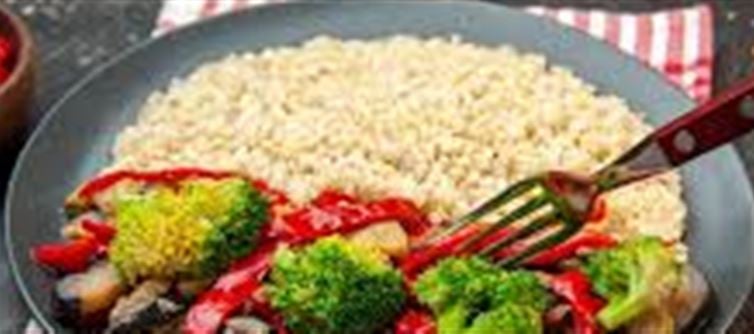
Building muscle isn’t just about lifting weights—it’s also about fueling your body with the right nutrients, especially protein. While many assume protein mainly comes from meat, there are plenty of vegetarian foods that can provide the protein you need to grow and repair muscles.
Here are 12 high-protein vegetarian foods perfect for muscle gain:
1. Lentils (Dal)
- Protein: ~18 g per cup (cooked)
Rich in fiber, iron, and complex carbs, lentils are a staple for vegetarians aiming for strength and endurance.
2. Chickpeas (Chana)
- Protein: ~15 g per cup (cooked)
Versatile for curries, salads, or hummus, chickpeas also provide slow-digesting carbs for long-lasting energy.
3. Quinoa
- Protein: ~8 g per cup (cooked)
A complete protein source (contains all 9 essential amino acids), quinoa is excellent as a rice substitute.
4. Paneer (Cottage Cheese)
- Protein: ~14 g per 100 g
Packed with casein protein, paneer digests slowly, making it great for overnight muscle recovery.
5. Greek Yogurt / Hung Curd
- Protein: ~10 g per 100 g
Thicker and richer than regular yogurt, it supports muscle repair and gut health.
6. Soybeans & Soy Products (Tofu, Tempeh, Soy Milk)
- Protein: ~28 g per cup (boiled soybeans)
Soy is a powerhouse of protein and also provides calcium and iron, supporting both bones and muscles.
7. Green Moong (Sprouts or Dal)
- Protein: ~14 g per cup (cooked)
When sprouted, moong becomes even more nutrient-rich, improving digestion and bioavailability of protein.
8. Peanuts & Peanut Butter
- Protein: ~7 g per 2 tbsp peanut butter
Along with protein, peanuts are rich in healthy fats—great for energy and muscle recovery.
9. Nuts & Seeds (Almonds, Chia, Flax, Pumpkin Seeds, Sunflower Seeds)
- Protein: ~5–9 g per 30 g serving
Packed with omega-3 fatty acids, zinc, and protein, they make perfect pre- or post-workout snacks.
10. Seitan (Wheat Gluten)
- Protein: ~25 g per 100 g
A popular vegan protein, seitan has a meat-like texture and is highly protein-dense.
11. Oats
- Protein: ~6 g per 1 cup (cooked)
Not just a carb source, oats provide a steady stream of protein and fiber—great for breakfast or pre-workout meals.
12. Edamame
- Protein: ~17 g per cup (cooked)
These young soybeans are delicious steamed or stir-fried and offer high-quality protein with essential amino acids.
🌟 Tips to Maximize protein Intake for Muscle Gain
- Combine different protein sources (lentils + rice, oats + nuts) for complete amino acid profiles.
- Spread protein intake across all meals instead of just dinner.
- Add protein-rich snacks like roasted chickpeas, nuts, or smoothies.
- Pair proteins with healthy fats and complex carbs for balanced energy.
✅ Final Word
You don’t need meat to build muscle—foods like lentils, paneer, soy, quinoa, and nuts can provide all the protein your body needs. With the right combinations and consistent workouts, these vegetarian protein sources can power your journey toward strength and muscle gain.
Disclaimer:
The views and opinions expressed in this article are those of the author and do not necessarily reflect the official policy or position of any agency, organization, employer, or company. All information provided is for general informational purposes only. While every effort has been made to ensure accuracy, we make no representations or warranties of any kind, express or implied, about the completeness, reliability, or suitability of the information contained herein. Readers are advised to verify facts and seek professional advice where necessary. Any reliance placed on such information is strictly at the reader’s own risk..jpg)




 click and follow Indiaherald WhatsApp channel
click and follow Indiaherald WhatsApp channel